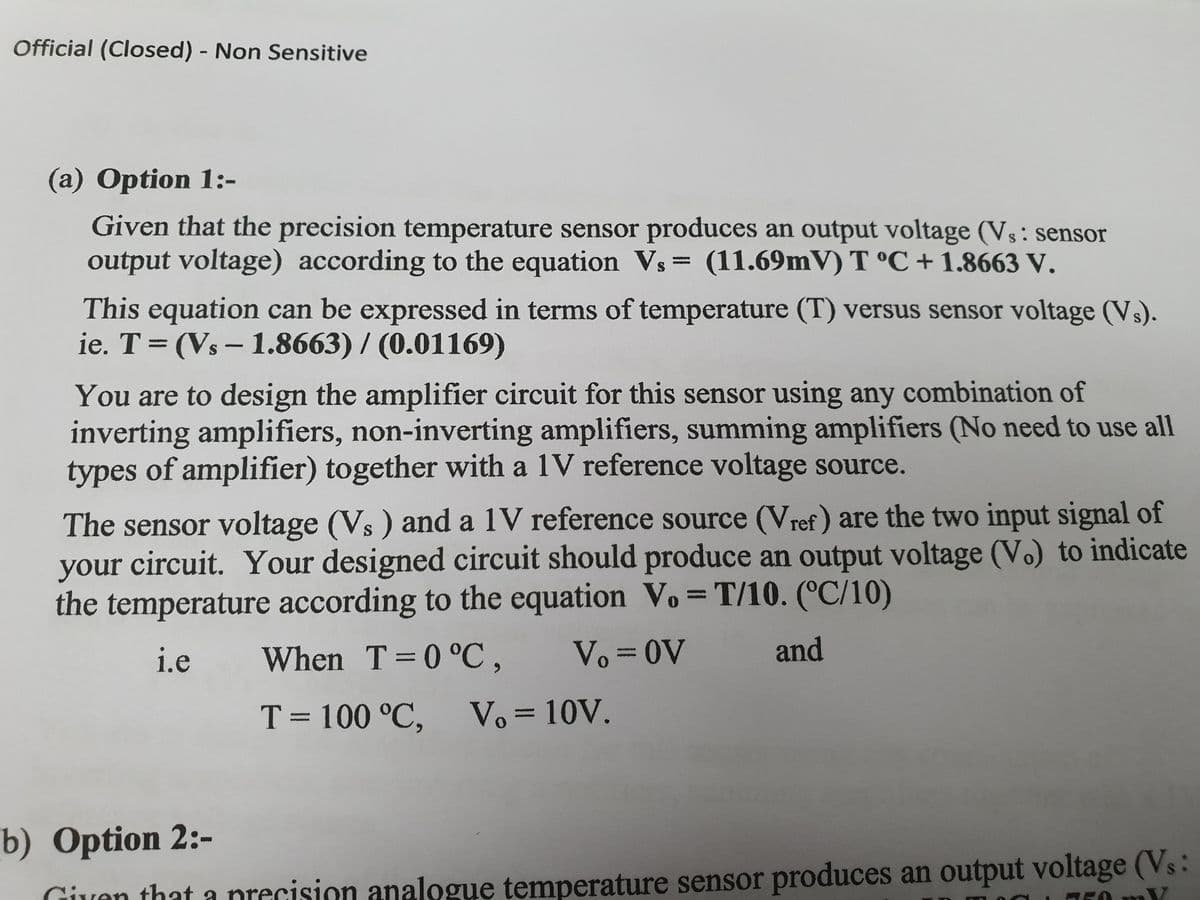(a) Option 1:- Given that the precision temperature sensor produces an output voltage (Vs: sensor output voltage) according to the equation Vs= (11.69mV) T°C +1.8663 V. This equation can be expressed in terms of temperature (T) versus sensor voltage (Vs). ie. T=(Vs-1.8663) / (0.01169) You are to design the amplifier circuit for this sensor using any combination of inverting amplifiers, non-inverting amplifiers, summing amplifiers (No need to use all types of amplifier) together with a 1V reference voltage source. The sensor voltage (Vs) and a 1V reference source (Vref) are the two input signal of your circuit. Your designed circuit should produce an output voltage (V.) to indicate the temperature according to the equation Vo = T/10. (°C/10) i.e When T=0 °C, Vo = OV and T = 100 °C, Vo = 10V.
Quantization and Resolution
Quantization is a methodology of carrying out signal modulation by the process of mapping input values from an infinitely long set of continuous values to a smaller set of finite values. Quantization forms the basic algorithm for lossy compression algorithms and represents a given analog signal into digital signals. In other words, these algorithms form the base of an analog-to-digital converter. Devices that process the algorithm of quantization are known as a quantizer. These devices aid in rounding off (approximation) the errors of an input function called the quantized value.
Probability of Error
This topic is widely taught in many undergraduate and postgraduate degree courses of:
Hi ease help on below Imnage question

Step by step
Solved in 3 steps with 24 images









